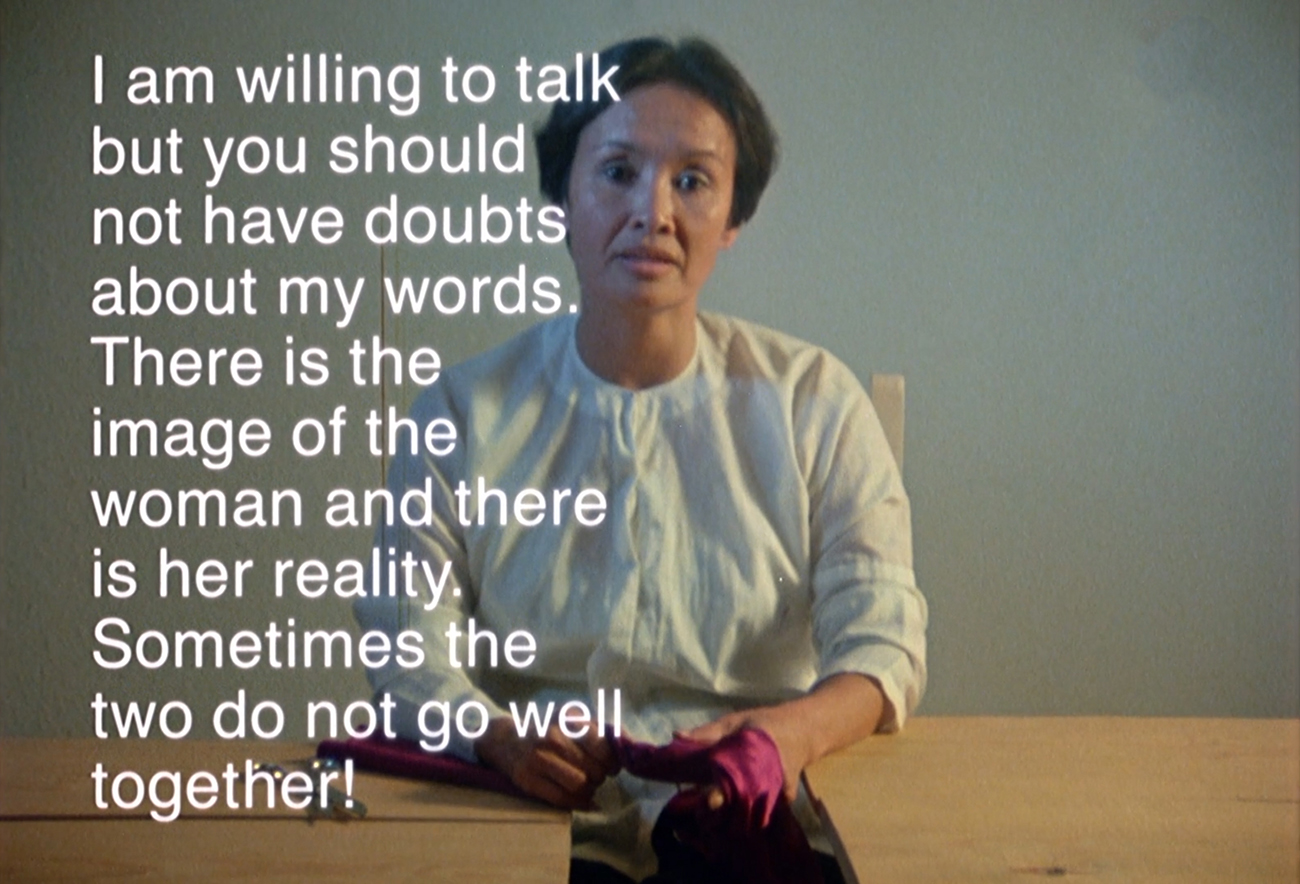Surname Viet Given Name Nam
Introduced by Trinh T. Minhha
Courtisane is een platform voor film en audiovisuele kunsten. In de vorm van een jaarlijks festival, filmvertoningen, gesprekken en publicaties onderzoeken we de relaties tussen beeld en wereld, esthetiek en politiek, experiment en engagement.
Courtisane is a platform for film and audiovisual arts. Through a yearly festival, film screenings, talks and publications, we research the relations between image and world, aesthetics and politics, experiment and engagement.
Introduced by Trinh T. Minhha

“A Vietnamese woman making a film on Vietnamese women: What could sound more familiar and correct in today’s context of cultural diversity and liberal pluralism?” And yet, says Trinh T. Minh-ha, self-representation and representation is a responsibility one cannot afford to merely reject. In order to break away from that kind of authorized subjectivity, she chose for a number of itineraries that would allow her to show “the culture” without endorsing the insider’s authority. This was largely done by avoiding the so-called factual historical information that one easily gets in history books on Vietnam, and by working with the more slippery realms of oral tradition and popular memory: the songs, sayings, proverbs that expose women’s condition; the stories that people remember of the historical heroines of Vietnam; and the life stories of contemporary Vietnamese women. In parallel, Trinh T. Minh-ha also emphasises the politics of the interview by drawing on a series of interviews that had been conducted in Vietnam by another woman of the Vietnamese diaspora (Mai Thu Van), translated and published in French, re-translated into English by herself, and then re-enacted in the film. In this way, both the role of translation in film and the role of film as a form of translation are problematised.
“It’s not a return in a physical sense, but a return in the sense that I made my two previous films in Africa before making Surname Viet – a film in which I have finally been able to come to terms with Vietnam or with a national identity; a film focusing on Vietnamese women or on female identity and difference. That’s why it was extremely important for me not to approach it from a legitimized “insider’s” point of view, but rather from a number of spaces locating me somewhere between an insider and an outsider. Spaces manifested, for example, in the acknowledgment of the mediator’s role; in the multiplicity of translation, of the “you” referred to by the interviewees, and of firstperson narratives; and in the exposing of the politics of interviews involved.”
English spoken